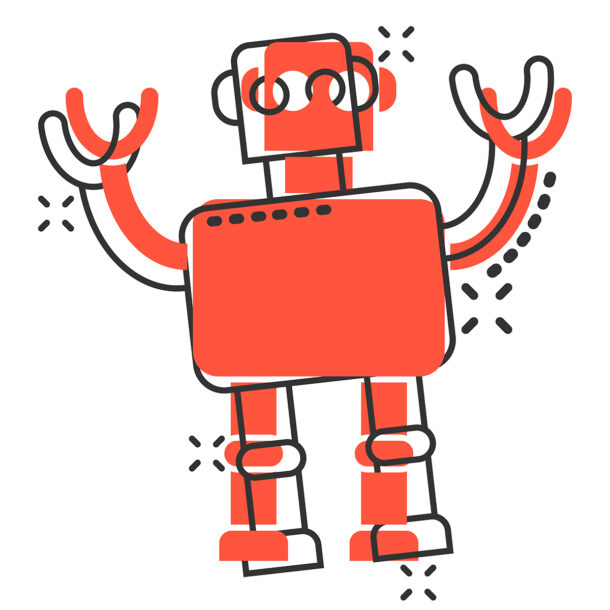In today’s digital-first world, chatbots have become an indispensable tool for businesses looking to enhance customer engagement and streamline operations. While many associate chatbots primarily with customer service, innovative companies are discovering a wealth of creative applications across various platforms. From WhatsApp to Messenger, Instagram to websites, chatbots are revolutionizing how businesses interact with their audience and conduct operations.
At We Are Gabba, we’ve seen first-hand how chatbots can transform businesses across industries. In this post, we’ll explore some of the most innovative ways companies are leveraging chatbots beyond traditional customer service roles.
- Personalized Shopping Assistants
Gone are the days of aimlessly browsing through endless product catalogues. Chatbots on platforms like WhatsApp and Facebook Messenger are now serving as personal shopping assistants, offering a tailored retail experience.
- Style Recommendations: Fashion retailers are using chatbots to provide personalized style advice based on user preferences, body type, and occasion.
- Product Discovery: E-commerce businesses are implementing chatbots that ask customers about their needs and preferences, then suggest relevant products from their inventory.
- Virtual Try-Ons: Some innovative chatbots integrate augmented reality (AR) features, allowing customers to virtually try on products like glasses or makeup through their device’s camera.
- Interactive Content Marketing
Chatbots are transforming content marketing from a passive to an interactive experience, particularly on platforms like Instagram and Facebook Messenger.
- Quiz-Based Engagement: Brands are using chatbots to create interactive quizzes that engage users while collecting valuable data on preferences and behaviors.
- Storytelling Bots: Some companies are experimenting with chatbots that tell brand stories or product narratives in an interactive, choose-your-own-adventure format.
- Content Curation: News outlets and content creators are using chatbots to deliver personalized content recommendations based on user interests and reading habits.
- Lead Generation and Qualification
While not entirely removed from customer service, innovative businesses are using chatbots as sophisticated lead generation and qualification tools across all platforms.
- Appointment Scheduling: Service-based businesses are using chatbots to qualify leads and schedule appointments, saving time for both customers and staff.
- Product Matching: B2B companies are leveraging chatbots to guide potential clients through a series of questions, matching them with the most suitable products or services.
- Event Registration: Event organizers are using chatbots to handle registrations, provide event information, and even facilitate networking among attendees.
- Employee Onboarding and Training
Chatbots aren’t just for external communication. Many companies are now using them internally for employee onboarding and ongoing training.
- Interactive Onboarding: HR departments are implementing chatbots to guide new employees through the onboarding process, answering FAQs and providing necessary resources.
- Skill Assessment: Some businesses use chatbots to conduct initial skill assessments for job applicants or to identify training needs for current employees.
- Continuous Learning: Chatbots can deliver bite-sized learning modules and quizzes to employees, helping with continuous professional development.
- Automated Workflow Management
Chatbots are streamlining internal processes and project management, particularly through integration with workplace messaging platforms.
- Task Assignment and Tracking: Project managers are using chatbots to assign tasks, track progress, and send reminders to team members.
- Meeting Scheduling: Chatbots integrated with calendar apps are simplifying the process of scheduling meetings and managing availability.
- Expense Reporting: Some companies are using chatbots to streamline expense reporting processes, allowing employees to submit and track expenses through conversational interfaces.
- Health and Wellness Support
In the healthcare and wellness sectors, chatbots are providing valuable support to users beyond simple information delivery.
- Symptom Checkers: Healthcare providers are using chatbots as initial symptom checkers, helping patients determine if they need to seek medical attention.
- Mental Health Support: Some organizations are implementing chatbots that provide initial mental health assessments and coping strategies for mild cases of anxiety or stress.
- Fitness Coaching: Fitness apps are integrating chatbots that act as virtual personal trainers, providing workout suggestions and tracking progress.
- Financial Services and Banking
The financial sector is leveraging chatbots to provide more than just account balance inquiries.
- Budgeting Assistance: Banks are using chatbots to help customers track spending, set budgets, and receive personalized financial advice.
- Investment Guidance: Some financial institutions are implementing chatbots that provide basic investment education and personalized portfolio suggestions.
- Fraud Detection: Chatbots are being used to alert customers to suspicious account activity and guide them through security processes.
- Travel and Hospitality
The travel industry is using chatbots to enhance the entire travel experience, from planning to post-trip feedback.
- Itinerary Planning: Travel agencies are using chatbots to help customers plan trips based on preferences, budget, and travel dates.
- Real-Time Travel Updates: Airlines and hotels are implementing chatbots that provide real-time updates on flight statuses, check-in times, and local attractions.
- Multilingual Support: Many travel-related chatbots offer multilingual support, helping travelers navigate foreign countries more easily.
- Education and E-Learning
Educational institutions and e-learning platforms are leveraging chatbots to support students and enhance the learning experience.
- Study Aids: Some educational chatbots serve as study companions, quizzing students on course material and providing explanations for incorrect answers.
- Administrative Support: Universities are using chatbots to handle admissions inquiries, course registrations, and student service requests.
- Language Learning: Language learning apps are implementing chatbots that engage users in conversational practice in their target language.
- Entertainment and Gaming
The entertainment industry is using chatbots to create immersive experiences and enhance user engagement.
- Interactive Storytelling: Some game developers are creating text-based adventure games entirely powered by AI chatbots.
- Fan Engagement: Celebrities and sports teams are using chatbots to interact with fans, share exclusive content, and even simulate conversations with fictional characters.
- Personalized Recommendations: Streaming services are implementing chatbots that provide personalized movie, TV show, or music recommendations based on user preferences and viewing history.
Conclusion
As these examples demonstrate, the potential applications for chatbots extend far beyond traditional customer service roles. By leveraging AI and natural language processing across platforms like WhatsApp, Messenger, Instagram, and websites, businesses can create more engaging, efficient, and personalized experiences for both customers and employees.
At We Are Gabba, we specialize in developing cutting-edge chatbot solutions tailored to your unique business needs. Whether you’re looking to enhance customer engagement, streamline internal processes, or explore innovative applications in your industry, our team of experts can help you harness the full potential of AI-powered chatbots.
Ready to explore how chatbots can transform your business? Book a demo with We Are Gabba today and discover the endless possibilities of AI-powered conversation.


